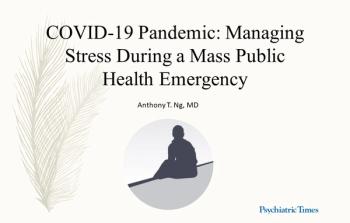
Health professionals' emotional reactions to the COVID-19 pandemic range from numbness, anxiety, fear, and rapid shifts to survivor guilt, helplessness, and feelings of detachment. Here: Stress management tactics and what to expect today and beyond.

Health professionals' emotional reactions to the COVID-19 pandemic range from numbness, anxiety, fear, and rapid shifts to survivor guilt, helplessness, and feelings of detachment. Here: Stress management tactics and what to expect today and beyond.
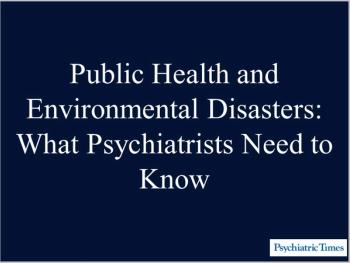
Most individuals who have experienced a disaster-related event or epidemic are at increased risk for distress behaviors that have equally significant and chronic consequences. Here’s what psychiatrists need to know.
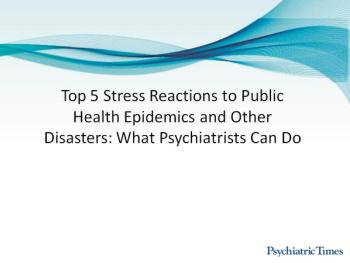
People experience a spectrum of reactions as a result of epidemics, such as Ebola, and disasters, such as weather-related events. Psychiatrists can provide interventions for those who are in distress with a special focus on mitigating these disaster stress reactions.

The mental health implications of disasters on individuals and communities are enormous. Psychiatrists play a key role in helping to mitigate and lessen the traumatic burden and in fostering resiliency efforts.

Published: November 17th 2010 | Updated:
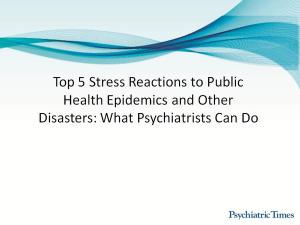
Published: October 21st 2014 | Updated:
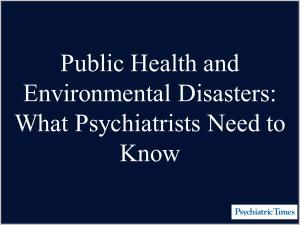
Published: June 23rd 2017 | Updated:
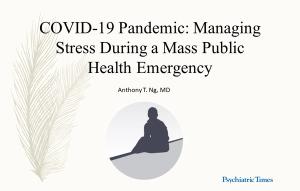
Published: April 8th 2020 | Updated: